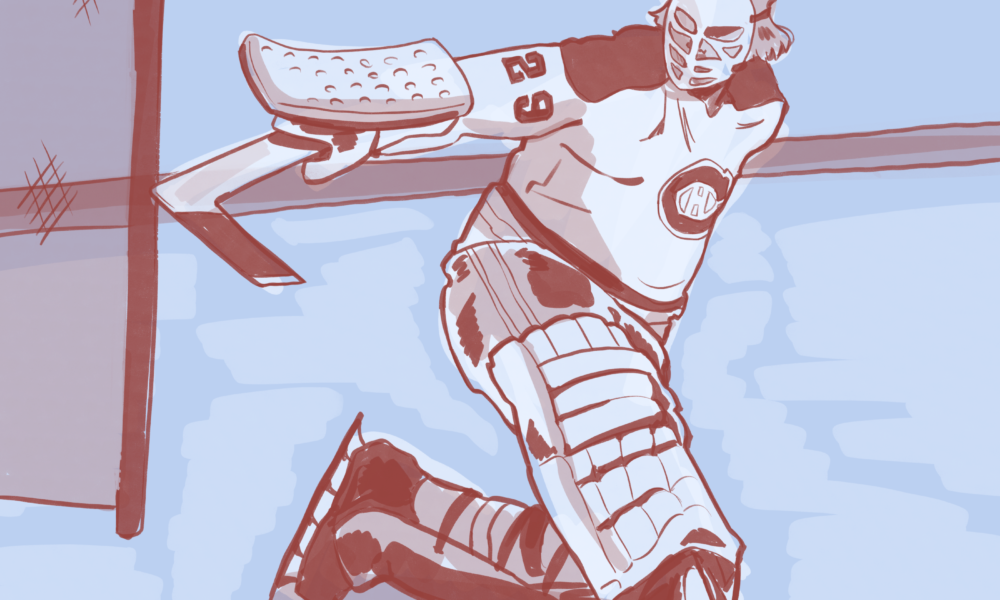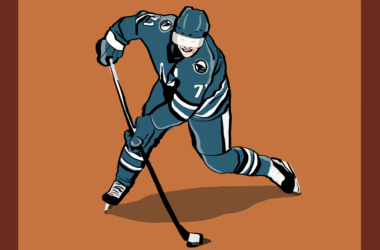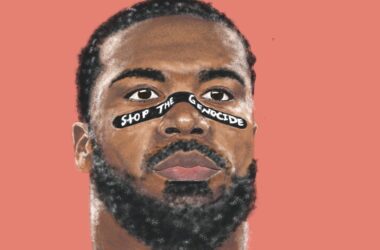Ken Dryden, the towering goaltender who backstopped the Montreal Canadiens to six Stanley Cups and became the calm heart of a dynasty, died on Sept. 5 at 78 following a battle with cancer. More than a hockey player, Dryden was a symbol of Montreal’s golden age. An athlete, intellectual, and leader, his presence still echoes throughout the city.
Dryden was larger than life in both frame and character. At six foot four, he commanded the crease with quiet authority, his face hidden behind a goalie’s pretzel mask that revealed little and shielded even less. His poise became the stuff of legend.
Born in Hamilton, Ontario, in 1947, Dryden was drafted by the Boston Bruins in 1964 before his rights were traded to Montreal. Prior to entering the big leagues, he pursued a history degree at Cornell University, while guiding the Big Red to their first national championship in 1967. But when Dryden finally donned his Canadiens jersey, few expected the extensive impact he would make.
Dryden had just six regular-season games under his belt when he was thrown into the 1971 National Hockey League (NHL) playoffs against the defending champion Bruins, led by Bobby Orr and Phil Esposito. Montreal was not expected to last. But Dryden, 23 years old and unshaken, outduelled the league’s best. He carried the Habs to the Stanley Cup title and was named the postseason’s most valuable player, winning the Conn Smythe Trophy.
The following year, Dryden earned the Calder Trophy as rookie of the year, having been ineligible in his first season without enough regular-season games. No one else has ever captured the Stanley Cup, Conn Smythe, and Calder in that order; it was a remarkable feat, unlikely to be replicated.
But Dryden did not stop there. He won the Vezina Trophy as the NHL’s top goaltender five times. He recorded 258 wins and 46 shutouts in 397 games.
From 1976 to 1979, the Canadiens won four straight Cups. Dryden’s style in net throughout these victories was not flashy, but cerebral. He employed a ‘stand-up’ style, focusing on anticipation and positioning, and rarely relying on sprawling saves. His intelligence and confidence in goal made Dryden a unifying presence in a city divided by language and culture, where the Canadiens were a shared source of pride.
Dryden was never only an athlete. While tending goal at night, he studied law at McGill University by day, often seen in the Forum with textbooks under his arm. When a contract dispute impacted Dryden’s play in 1973, he stepped away from the Canadiens for a season to complete his degree and article at a Toronto law firm.
In his post-hockey career, Dryden’s relationship with McGill endured. Decades later, he returned to the university to teach “Making the Future”—a course that challenged its students to transform their visions into action, and think critically about the version of Canada that awaited them. His dedication to activism also helped launch “FSCI 198: Climate Crisis and Climate Actions,” a course that continues to shape how students confront urgent environmental issues today.
Dryden retired definitively from hockey in 1979 at just 31, before carving out a second act as an author, lawyer, commentator, and public servant. His 1983 book, The Game, is still hailed the finest book ever written on hockey, as it blends sport with reflections on culture, pressure, and identity. He later became president of the Toronto Maple Leafs, entered politics as a federal cabinet minister, and in 2013, was named an Officer of the Order of Canada. He was inducted into the Hockey Hall of Fame in 1983, and his No. 29 jersey was raised to the rafters of the Bell Centre in 2007.
Numbers alone cannot define Ken Dryden. Montreal remembers the calm presence he displayed in the crease. McGill remembers the scholar who inspired students to dream boldly. And Canada remembers a man who stood tall—for the game, for his community, and for the future he helped shape.
Dryden is survived by his wife, two children, and four grandchildren.
We will always remember the quiet courage and grace he showed in life, and in facing cancer. Thank you, Mr. Dryden. Your spirit will continue to inspire generations to come.









